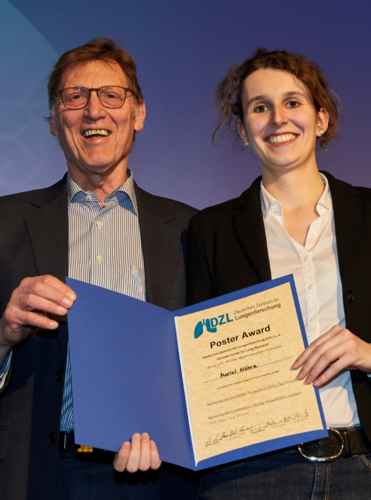It is well known that the psychic comorbidity (simultaneously occurring illnesses) in patients before and after lung transplantation is high. In the guidelines of the German Medical Association regarding the coordination of waiting lists and organ allocation, it is set out that, prior to inclusion in the waiting list for lung transplantation, all patients should undergo a psychosocial evaluation. This evaluation aims to identify possible psychosocial risk factors.
We use standardized interviews to identify possible risk factors. In our study, we have registered 390 patients prior to lung transplantation and conducted interviews using the Transplant Evaluation Rating Scale (TERS). In addition, the health-related quality of life, level of depressiveness, anxiety and, retrospectively, the time until listing for transplantation were recorded.
With the help of statistical tests, the TERS questions could be summarized in two main categories: „behavior“ and „emotional sensitivity“. It could be shown that the „emotional sensitivity“ is primarily connected with the level of anxiety and depressiveness. More noticeable problems in the „behavior“ category, however, are connected in our test with a lengthier time until listing for transplantation. Since both categories represent various potential real-life problem areas, separate evaluation is clinically meaningful.
In the next step, it is planned to examine the extent to which the results of the questionnaire and the two categories correlate with the state of health of the patients one year after transplantation. For this step, data from more than 100 patients are already available. Alongside depressiveness, anxiety and health-related quality of life, it is also planned to examine the association with physical parameters.
It is not the aim of these evaluations to define a threshold level for the TERS, beyond which patients should not undergo transplantation. It is more a question of determining the importance of various aspects to ensure success after transplantation. Many of the factors enquired in the TERS are variable: thus, for example, mental illnesses can be treated with psychotherapy and adherence to the guidelines for taking medication can be improved with targeted measures. Long-term, it is the aim of our research to identify more specifically at an earlier stage those aspects that could endanger a successful transplantation, thus being able to offer patients suitable psychosocial interventions as quickly as possible.
Text: Nöhre
Photo: Mike Auerbach

Prof. Dr. Werner Seeger and Dr. Mariel Nöhre